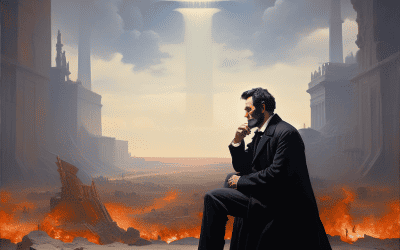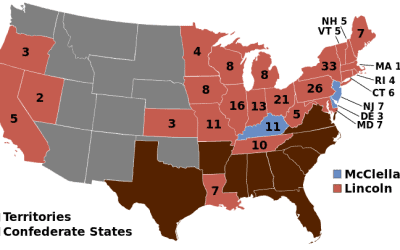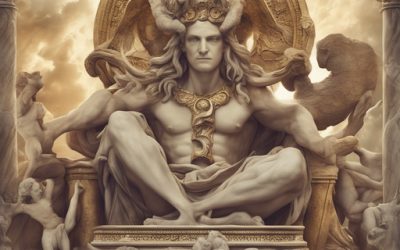By William H. Benson
The Parallel Lives
Of The NOBLE AMERICAN RELIGIOUS THINKERS AND BELIEVERS:
Roger Williams VS. Cotton Mathers
NEW ARTICLES
Christopher Columbus
Christopher Columbus’s three ships—the Nina, Pinta, and Santa Maria—first landed on a beach of a small island within the Bahama Islands, in the Caribbean Sea, on October 12, 1492. The natives called their tiny island, Guanahani, but Columbus re-christened it San Salvador.
The ninety men aboard the three ships had sailed from Palos, Spain on August 3, 1492. Thus, Columbus had guided the men west across the Atlantic for 71 days, in mainly calm weather.
Columbus wanted to believe that he had stumbled upon the east Indies, perhaps Malaysia or Indonesia, so anxious was he to find a shorter trade route that linked India and China to Europe.
Hence, Columbus called the natives “Indians,” a name that stuck most unfairly, because India lay thousands of miles west of the Bahamas. Although Columbus did not know it, he had bumped into two continents, North and South America, unknown then in Europe.
What was the native population in 1492, of North America, including central America, Mexico, the United States, and Canada? The numbers are difficult to determine, because the natives kept no records, no books, no statistics.
One historian named Alan Taylor explained in his 2001 book, “American Colonies: The Settling of North America,” that in early 20th century, certain “low counters” pegged the number at 10 million people in both North and South America.
By the late 20th century, the “high counters” doubled that number to 20 million. Some daring “high counters” insisted upon a number as high as 100 million.
Most scholars today settle for a number near 50 million, which is half the number that the bold “high counters” had insisted upon, but five times the number that the former “low counters” had settled for.
As for the numbers north of the Rio Grande, in the future U.S. and Canada, researches argue that there were at least two million Native Americans, but perhaps as many as ten million.
What happened during the 20th century that prodded scholars to revise their numbers higher?
First, scholars pointed to evidence for a dramatic depopulation of the Native Americans that occurred throughout the 16th and into the 17th centuries, a cruel result of Columbus’s arrival..
Second, they found evidence that proved that much of North America was more densely populated than was first believed.
In 1890, the United States census recorded a total Native American population of 237,196, a number that stuns. It fell from between two and ten million down to a quarter of a million.
One environmental historian of the twentieth century, Alfred W. Crosby, Jr., said in his 1972 book, “The Columbian Exchange: Biological and Cultural Consequences of 1492,” that this population collapse was “surely the greatest tragedy in the history of the human species.”
What caused the collapse? Alan Taylor explains, “The breath, blood, sweat, and lice of the colonizers, and of their livestock and rats conveyed deadly pathogens that consumed Indians who lacked the immunological resistance of past experience.
“The greatest killers were eruptive fevers, smallpox, measles, and typhus, but Indians also suffered from respiratory infections, including whooping cough and pneumonia. Chickenpox killed Indians of all ages. One disease might weaken a victim, but another disease would kill.”
Alfred W. Crosby labeled these Columbian exchanges of diseases, “virgin soil epidemics, those in which the populations at risk have had no previous contact with the diseases that strike them and are therefore almost defenseless.” A fact, these exchanges were one-sided.
Native Americans suffered and died in far greater numbers than did the Europeans.
On Monday, October 13, the nation celebrates Columbus Day. Four states, including Nebraska, co-celebrate Columbus Day and Indigenous People’s Day, a day to reflect upon what happened 533 years ago.
Black History Month: Reconstruction, 1865-1866
In December of 1863, in the midst of the Civil War, President Abraham Lincoln suggested a plan to reinstate the seceded states back into the Union, his “Ten Percent Plan.”
He would permit each Confederate state to form a new state government after ten percent of the voters in a state took loyalty oaths to the Union and recognized the former slaves’ freedom.
Following Lincoln’s assassination on April 9, 1865, his successor, former Vice-President Andrew Johnson, decided to run with Lincoln’s Ten Percent Plan.
Throughout the summer and fall of 1866, the Southern states
Black History Month: Phillis Wheatley and Billy Lee
Two African-American slaves from the eighteenth century: Phillis Wheatley and William “Billy” Lee. The first a woman, the second a man. The first a poet, the second a valet. The two received their freedom from their respective owners, and they each knew George...
National Freedom Day and Black History Month
On Feb. 7, 1926, Carter G. Woodson, a professor of history, announced that he would celebrate and highlight for the first time ever a single week devoted to African-American history, and he called it “Negro History Week.”
He selected the second week in February because of its proximity to Abraham Lincoln and Frederick Douglass’s birthdays, Lincoln on Feb. 12, and Douglass on a day in February.
Frederick Douglass’ “Slaveholder’s Sermon”
On May 11, 2017, the newly-elected U.S. President, Donald Trump, issued an executive order to form a Presidential Advisory Commission on Election Integrity. He appointed Vice-President Mike Pence as chair, and Kansas State’s Secretary of State Kris Kobach as vice-chair.
Assertion is not evidence
On May 11, 2017, the newly-elected U.S. President, Donald Trump, issued an executive order to form a Presidential Advisory Commission on Election Integrity. He appointed Vice-President Mike Pence as chair, and Kansas State’s Secretary of State Kris Kobach as vice-chair.
Unique words in history
December 16 marked the 250th anniversary of the Boston Tea Party, when colonial Bostonians dressed as Mohawk Indians boarded three ships—Dartmouth, Eleanor, and Beaver—split open 340 chests filled with tea, and dumped their contents into Boston’s harbor.
This defiant act was directed as a protest against Parliament’s insistence that the consignees of the tea in the American colonies pay an import tax, to keep afloat the struggling British East India Company, which brought the tea to the colonists.
The colonists were angry. They paid taxes to their
Older Posts
Secession and Abraham Lincoln
Abraham Lincoln faced an absolute calamity on March 4, 1861, the day when Chief Justice Roger Taney administered the oath of office to Lincoln at his inauguration.
Already seven states from the South had seceded, or withdrawn, from the Union because voters had elected Lincoln President of the United States. Southern voters believed that Lincoln opposed the expansion of slavery into western territories, like Kansas and Nebraska.
South Carolina voted to secede on December 20, 1860, forty-four days…
Election of 1864
Throughout the year of 1864, President Abraham Lincoln believed that he would lose the election in November. He admitted in August, “I am going to be beaten, and unless some great change takes place, badly beaten.” The odds were stacked against him.
Plenty of voters in the Union had reason to despise, even hate, Lincoln.
Tunnels and war coincide
People burrow into the subsoil, build tunnels, plus storage rooms, and stockpile food and water, for one reason, and that is to stay alive. Atop the ground, in the open air, in the sunshine, they feel oppressed, insecure, and poised to die or suffer an injury.
On July 4, 1863, thirty-one thousand Confederate soldiers, trapped inside Vicksburg, on the Mississippi River, surrendered to the Union’s commanding officer, Ulysses S. Grant, on the forty-eighth day of Grant’s siege of that town.
During the siege, civilians had dug some five hundred caves into the hillsides, and fitted them out with “rugs, beds, and chairs.” One cave dweller said, “We were in hourly dread of snakes. The vines and thickets were full of them.”
What can I achieve with Greek mythology?
What is the good that comes from knowing even a little about the ancient Greeks’ religion?
I prefer to learn of actual people who once lived in a historical setting, a time and a place. Greek mythology, instead, is a collection of make-believe fantasy stories I would like to know more of, but I find it hard to gain much traction from them, practical use. I wonder.
Mark Twain disparaged the whole notion. “Classics,” he said, “are the books that everybody wants to claim to have read, but nobody wants to read.”
After all, Greek religion is mythology, a series of stories about the gods and the goddesses whom the Greeks believed resided on or near Mount Olympus.
They included a dozen Olympians: Zeus, Poseidon, Hades, Hestia, Her
Steve Inskeep’s new book: “Differ We Must”
Since 2004, radio personality Steve Inskeep has hosted National Public Radio’s “Morning Edition.” During Covid lockdown in 2020, at home with time to spare, Inskeep researched and wrote a book that was published this past week.
Inskeep found its title, “Differ We Must: How Lincoln Succeeded in a Divided America,” in a letter that Abraham Lincoln wrote to his good friend Joshua Speed, dated August 24, 1855.
Last week, Inskeep explained to Amna Nawaz of PBS News Hour, and Scott Simon of NPR, that Speed was from Kentucky, that he was from a rich family that owned more than 50 slaves. Speed approved of slavery. Lincoln also was from Kentucky, but his family was poor, and Lincoln hated slavery.
Peering into the future
Peering into the futureSome people possess a talent to peer deep into the future. In Biblical times people called them prophets. In the Middle Ages, people believed them wizards. Today they are economists who make projections based upon previous business data. Thomas...

One of University of Northern Colorado’s 2020 Honored Alumni
William H. Benson
Local has provided scholarships for history students for 15 years
A Sterling resident is among five alumni selected to be recognized this year by the University of Northern Colorado. Bill Benson is one of college’s 2020 Honored Alumni.
Each year UNC honors alumni in recognition for their outstanding contributions to the college, their profession and their community. This year’s honorees were to be recognized at an awards ceremony on March 27, but due to the COVID-19 outbreak that event has been cancelled. Instead UNC will recognize the honorees in the fall during homecoming Oct. 10 and 11……
Newspaper Columns
The Duodecimal System
For centuries, the ancient Romans calculated sums with their clunky numerals: I, V, X, L, C, D, and M; or one, five, ten, 50, 100, 500, and 1,000. They knew nothing better.
The Thirteenth Amendment
On Jan. 1, 1863, President Abraham Lincoln signed the Emancipation Proclamation, and by it, he declared that “all persons held as slaves” within the rebellious states “are and henceforward shall be free.” Lincoln’s Proclamation freed some 3.1 million slaves within the Confederacy.
The Fourteenth Amendment
After Congress and enough states ratified the thirteenth amendment that terminated slavery, Congress passed the Civil Rights Act of 1866. This law declared that “all people born in the United States are entitled to be citizens, without regard to race, color, or previous condition of slavery or involuntary servitude.” The Act equated birth to citizenship.
The New-York Packet and the Constitution
Jill Lepore, the Harvard historian, published her newest book a month ago, These Truths: A History of the United States. In a short introduction, she describes in detail the Oct. 30, 1787 edition of a semi-weekly newspaper, The New-York Packet.
Mr. Benson’s writings on the U.S. Constitution are a great addition to the South Platte Sentinel. Its inspiring to see the history of the highest laws of this country passed on to others.
– Richard Hogan
Mr. Benson, I cannot thank you enough for this scholarship. As a first-generation college student, the prospect of finding a way to afford college is a very daunting one. Thanks to your generous donation, my dream of attending UNC and continuing my success here is far more achievable
– Cedric Sage Nixon
Donec bibendum tortor non vestibulum dapibus. Cras id tempor risus. Curabitur eu dui pellentesque, pharetra purus viverra.
– Extra Times
FUTURE BOOKS
- Thomas Paine vs. George Whitefield
- Ralph Waldo Emerson vs. Joseph Smith
- William James vs. Mary Baker Eddy
- Mark Twain vs. Billy Graham
- Henry Louis Mencken vs. Jim Bakker












